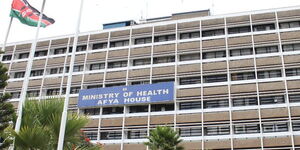Since taking office, President William Ruto has introduced a raft of far-reaching tax measures that he insists will be the catalyst for economic reforms in the country.
The downside of these reforms casts a burden on Kenyans who are grappling with the high cost of living.
In contrast, President Ruto has defended these tax measures, indicating that his administration has evaded a financial crisis that has befallen other African countries such as Ethiopia, Ghana and Zambia which have plunged into debt distress in the past.
On the other hand, the head of state has promised to either lower or eliminate several tax policies following concerns raised by the public. Kenyans.co.ke takes a look at these four tax policies.
Corporate Tax
Definition: tax applied to profit made by a company over a specified period. It includes gross income minus the gross expenditure.
Current Effect: For investors seeking to enter into the Kenyan markets, high rates of corporate tax discourage foreign direct investments, hence causing them to seek other markets.
In some cases, the high rates cause reduced compliance by taxpayers, which results in a decline in income tax as a share of the Gross Domestic Product (GDP).
Proposal: In the Budget Policy Statement released in February 2024, the National Treasury would lower the corporate tax from existing 30 per cent to 25 per cent.
VAT on Building Materials
Definition: Value Added Taxes are applied to all taxable goods and services that are not zero-rated. In this case, this is applied to building materials needed for the Affordable Housing program.
Current Effect: Owing to the VAT, the cost of constructing the houses has shot up. This essentially hampers the target instituted by President Ruto's administration to construct 250,000 housing units per unit. He aims to have constructed 1 million houses across the country by 2027.
Proposal: While launching the Affordable Housing Program in Mombasa in November 2023, Ruto promised to eliminate the tax on building materials.
Taxes on Packaging Materials
Definition: Currently, packaging material imported in Kenya is taxed, hence affecting products meant for export.
Current Effect: In the tea sector, investors have lamented over the increased cost of production hence affecting their sales. Overall, this affects Kenya's ability to export tea as it ranked as the second largest tea export in the world, generating an estimated Ksh200 billion in revenue.
Proposal: Ruto promised that he would remove the taxes on packaging materials imported into Kenya. He, however, noted that his administration was concluding the necessary approval before rollout.
Farm Produce Tax
Definition: This is a tax on every farmer's produce who will be required to pay Ksh5 for every Ksh100 obtained from the sales. In new tax measures, the government has proposed to increase the taxing measures, insisting that the agricultural sector is undertaxed.
Effect: The government seeks to capitalise on the sector, which it insists contributes an average of 21 per cent of the GDP. The measures have elicited an uproar from farmers who lamented that it would lead to diminishing returns as the majority rely on the profits as their daily income.
Proposal: Following the uproar DP Rigathi Gachagua promised to look into the matter and promised the farmers to implement policies that improved their fortunes.












